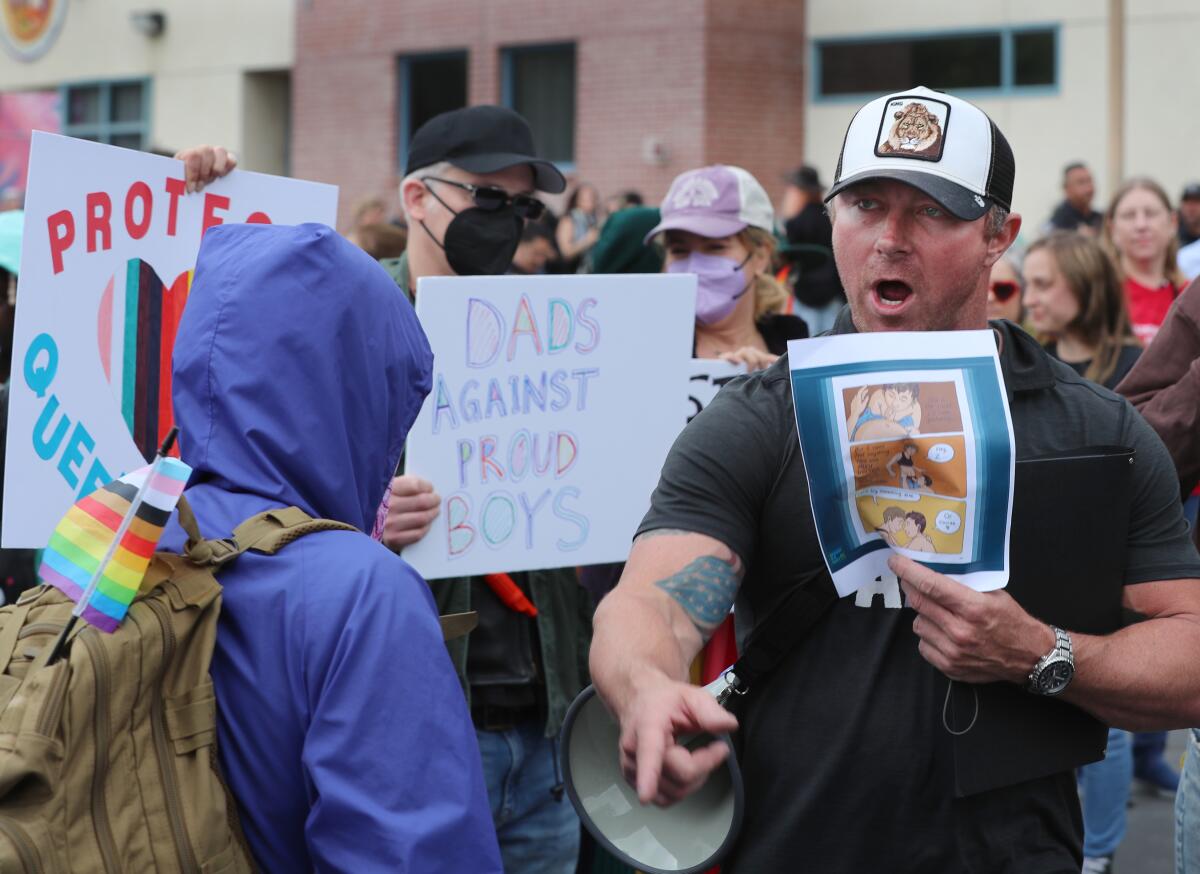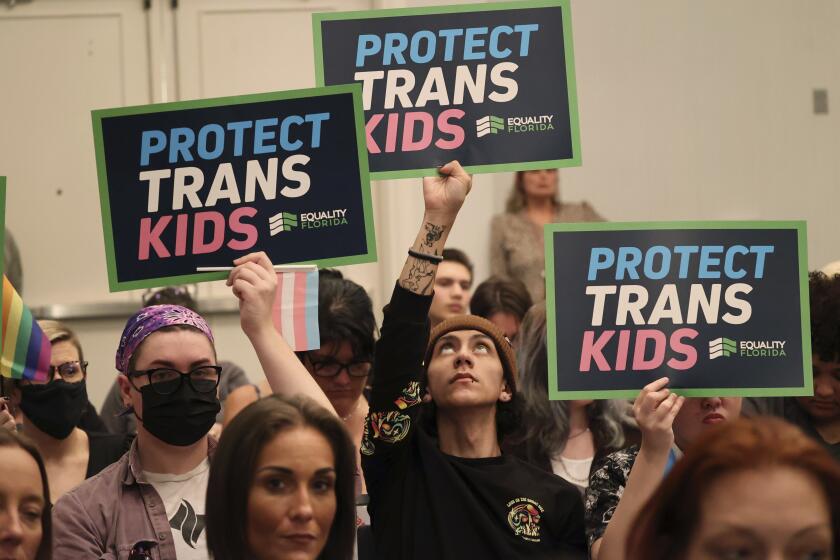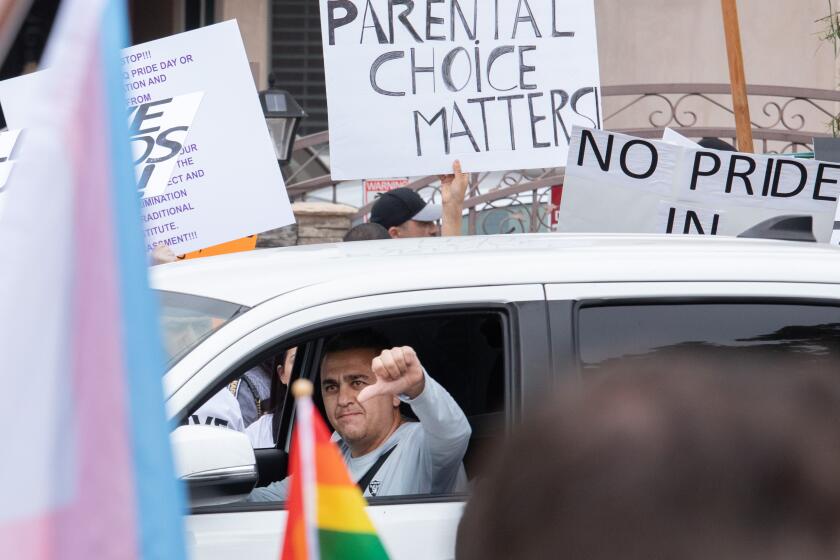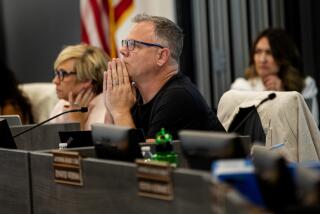Editorial: Talk about pride. Schools stand up against intolerance and hate

It was supposed to be a routine vote. On the Tuesday agenda for the Glendale Unified School District Board of Education was an item designating June as Pride Month for the LGBTQ+ community, recognizing the month in which the 1969 Stonewall uprising began. Local boards and councils vote on ceremonial items like this all the time to recognize various communities in their districts.
But then the agents of hate showed up. Even before the meeting, dozens of people gathered outside to lodge their objection to a vote that they believe supported the rights of LGBTQ+ people. Among the protesters were members of the Proud Boys, a group advocating for white supremacist and anti-government ideologies that participated in the Jan. 6, 2021, insurrection. Soon, LGBTQ+ advocates showed up to protest the protesters, and before long the crowd became unruly and violent. Three people were arrested.
In the end, the Glendale school board voted to support the designation and, in so doing, took a courageous stand against an insidious strain of intolerance that has been creeping into public school districts across the nation.
Forcing California teachers to notify parents that their kids are transgender would be harmful. Conservatives should stop wasting time on issues that hurt public education.
Just the week before, a very similar scenario played out in North Hollywood over a school assembly featuring, “The Great Big Book of Families” at the Saticoy Elementary School. Protesters carried signs with statements such as, “Parental Choice Matters.” Ironically, Saticoy parents did have a choice about whether they wanted their kids to attend the assembly.
That protest didn’t scare the Los Angeles Unified school board either. On Tuesday the board passed a resolution listing upcoming events it will recognize in addition to Pride Month, such as LGBTQ+ History Month in October and Transgender Day of Remembrance on Nov. 20. In addition, the resolution encourages all district schools to incorporate LGBTQ+ curriculum adopted by the state.
Troublingly, the protests in Glendale and North Hollywood are part of a growing political movement nationwide targeting LGBTQ+ communities, trying to silence and erase them, and even often falsely accusing them of crimes. Books that have been banned in districts nationwide, including in California, are often targeted solely because they include LGBTQ+ characters or topics.
A decade since a ban on same-sex marriage was struck down, such families have ceased to be novelties.
On Tuesday, the Human Rights Campaign declared a state of emergency for LGBTQ+ people in the U.S. in light of more than 525 state bills in 2023 targeting them. It was the first time in its 43-year history that the civil rights organization made such a declaration. More than 70 of these bills have been signed into law so far this year.
These targeted campaigns aren’t just happening in states governed by primarily Republican legislators. At the Temecula Valley Unified School District in Riverside County, teachers protested on Tuesday after the school board rejected social studies textbooks and curriculum for elementary students that contained what school board members called “morally objectionable material.” School board President Joseph Komrosky called slain gay rights activist and former San Francisco Supervisor Harvey Milk “a pedophile.” Shame on that board for tolerating such hateful statements at a public meeting.
Too many school districts are giving into the intolerant bullies. Los Angeles and Glendale should be proud that their school boards did not.
More to Read
A cure for the common opinion
Get thought-provoking perspectives with our weekly newsletter.
You may occasionally receive promotional content from the Los Angeles Times.












